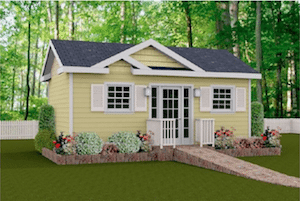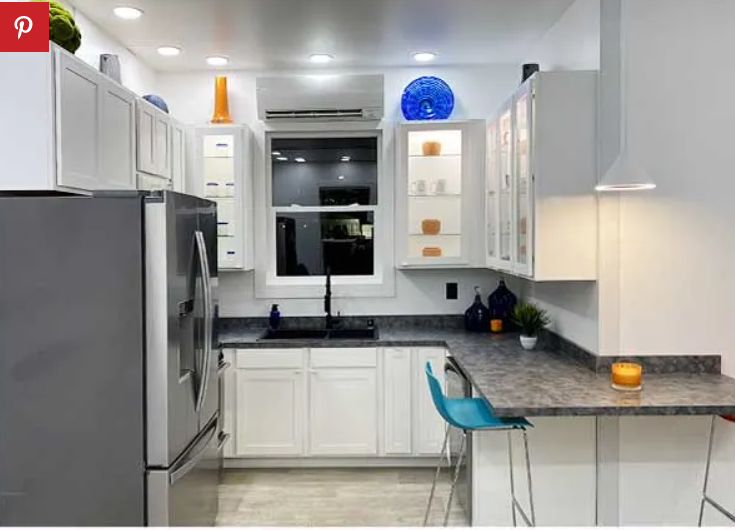As our population ages, many families are confronted with the challenge of ensuring their elderly loved ones receive the care they need while maintaining a sense of independence and dignity. The MedCottage, commonly known as a “granny pod,” presents an innovative solution by offering a self-contained medical home designed to be installed in a family’s backyard. This concept has garnered attention for its potential to bridge the gap between independent living and the need for comprehensive care. However, like any solution, it comes with its own set of advantages and disadvantages. This article delves into the pros and cons of choosing a MedCottage for elderly care, aiming to provide families with the information needed to make an informed decision.
The Pros of Choosing a MedCottage
The growing need for alternative elderly care solutions has led to the emergence of innovative options like the MedCottage, often affectionately termed a “granny pod.” This portable medical home, designed to be installed in the backyard of a family member’s house, offers a unique blend of convenience, care, and comfort for the elderly. In this article, we delve into the pros of choosing a MedCottage for elderly care, highlighting the benefits this modern solution brings to families navigating the challenges of aging loved ones.
Proximity to Family
One of the cornerstone advantages of the MedCottage is its ability to bridge the physical gap between aging parents and their families. By situating the elderly within the family’s property, it fosters an environment where loved ones are merely steps away. This close proximity not only facilitates regular, meaningful interactions but also significantly reduces feelings of loneliness and isolation among seniors. It’s a reassurance that in times of need, whether for an emergency or just for companionship, family members are immediately accessible. Such an arrangement can greatly enhance the emotional well-being and security of the elderly, providing a sense of belonging and community that is often missing in more traditional elderly care settings.
Independence and Privacy
Despite being located close to the family home, MedCottages are designed to offer residents their own independent living space. This arrangement is crucial in maintaining the dignity and autonomy of seniors, allowing them to lead their lives in a manner they’re accustomed to, with the added benefit of safety measures. The privacy afforded by a MedCottage is comparable to living in one’s own home, yet with the added peace of mind that comes from knowing help is nearby if needed. This balance between independence and accessible care addresses one of the most significant challenges in elder care — respecting the desire for privacy while ensuring safety.
Built-in Medical Facilities and Safety Features
MedCottages stand out for their comprehensive integration of medical facilities and safety features. These units come equipped with advanced technology and design elements tailored to the specific health needs of the elderly. Features such as emergency response systems, accessible bathrooms, and customized medical equipment ensure that seniors have access to the care and assistance they require, directly within their living space. This level of care, typically expected in high-end assisted living facilities or nursing homes, is a significant advantage, offering families a more personalized and convenient approach to managing their loved one’s health needs.
Cost-Effectiveness
One of the most compelling arguments for choosing a MedCottage is its cost-effectiveness compared to traditional elderly care options. The financial burden of nursing homes and assisted living facilities can be overwhelming for many families, with costs accumulating to substantial amounts over time. In contrast, a MedCottage represents a one-time investment that can significantly reduce long-term expenses. By eliminating monthly fees and reducing the need for external care services, families can save thousands of dollars, making it a financially prudent choice for those looking to provide quality care for their elderly loved ones without breaking the bank.
The Cons of Choosing a MedCottage
While the benefits of MedCottages offer compelling reasons for families to consider this innovative elderly care solution, there are also several drawbacks that must be taken into account. These cons, ranging from logistical and legal challenges to concerns about social isolation and future utility, present a more nuanced view of the decision to adopt a MedCottage for elderly care.
Zoning Laws and Installation Challenges
The path to installing a MedCottage can be fraught with regulatory hurdles, as zoning laws and regulations vary widely across different municipalities. Some areas have strict limitations on the types of structures that can be placed on residential properties, potentially restricting or outright prohibiting the installation of MedCottages. This variability means that families must engage in extensive research and potentially face lengthy application processes or seek special permits, adding layers of complexity and uncertainty to the process. The need for compliance with local laws not only requires additional effort but may also incur extra costs or delays, impacting the feasibility of choosing a MedCottage for some families.
Limited Space and Adaptability
MedCottages are engineered to maximize efficiency and functionality within a compact space. However, this limited space can be a significant drawback for residents accustomed to more expansive living areas. The constrained environment might not suit everyone, especially those with hobbies or lifestyles that require more room. Furthermore, the adaptability of MedCottages to accommodate certain medical equipment or modifications for specific disabilities may be limited. This lack of flexibility can pose challenges in providing personalized care or adapting to the evolving needs of the elderly as their health conditions change over time.
Social Isolation
The design of MedCottages, while providing proximity to family, inherently involves a degree of physical separation. This separation, if not actively managed, could lead to feelings of social isolation for the occupant. Despite being close to loved ones, the distinct living quarters can create a barrier to spontaneous social interactions, making it essential for families to make concerted efforts to include the MedCottage resident in daily activities and gatherings. The risk of isolation underscores the importance of regular, meaningful engagement to ensure that the benefits of close proximity translate into improved emotional well-being for the elderly resident.
Resale Value and Utility Post-Use
Investing in a MedCottage involves consideration of its long-term implications, particularly regarding the resale value of the property and the future utility of the unit. The presence of a MedCottage may affect the marketability of a property, potentially limiting the pool of interested buyers or affecting the overall property value. Additionally, once the immediate need for the MedCottage passes, families must contend with the question of what to do with the structure. Options may include repurposing it for other uses, selling it, or facing the cost and logistics of removal, each presenting its own set of challenges and considerations.
Conclusion
Choosing a MedCottage for elderly care is a decision that comes with both clear benefits and notable challenges. It offers a unique solution for families seeking to keep their aging loved ones close while providing them with the specialized care they need. However, it’s essential to weigh these pros and cons carefully, taking into account the specific needs and circumstances of your family and loved one. With thorough research and thoughtful consideration, a MedCottage can be an excellent option for those looking for an alternative to traditional elderly care solutions.




